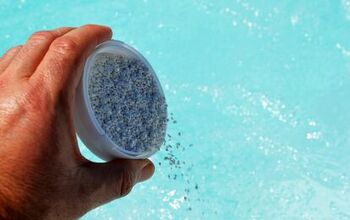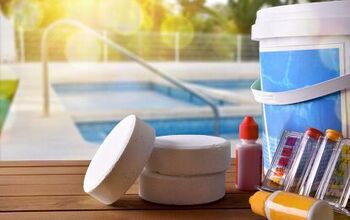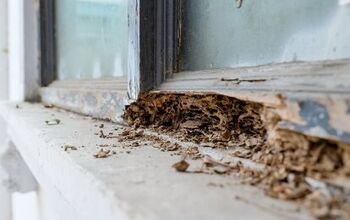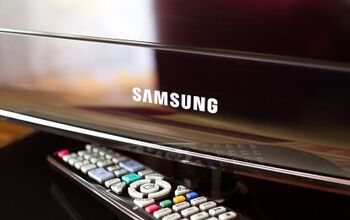How Often Should You Shock Your Pool?

Pool maintenance can be a lot to keep up with, but the pros far outweigh the cons. Shocking a pool is a great way to fix countless problems, such as algae blooms and poor water clarity. So, how often should you shock your pool?
Ideally, you should shock your pool once per week to maintain a healthy chlorine level. It’s a great idea to shock the water if the chlorine level is 1.0 parts per million or lower. You must also shock your pool if the water is cloudy, full of algae, or simply smells and looks bad.
You may also need to shock your pool after a party where many people swim. The combination of makeup, bug spray, sunscreen, and sweat can quickly make pool water dirty. Follow along as we explore how often you should shock your pool.
How Do I Know If I Need To Shock My Pool?
Whether it be low chlorine or algae blooms, many signs indicate that it’s time to shock your pool. Pay attention to the following signs that show the water in your pool needs treatment, such as:
Low Chlorine Level
Shock your pool if the free chlorine count falls below 1 part per million, as that’s not high enough to fight bacteria. That isn’t something you can identify by looking at your pool, so you must keep test strips at home. A healthy pool has a chlorine level of 1-3 ppm.
Chlorine quickly dissipates in swimming pools, especially on hot days. That’s why many people treat their pools with chlorine pucks in between shocking the pool once per week.
Cloudy Water
Cloudy pool water doesn’t necessarily mean you should shock your pool. It depends on what's causing it. However, you can clear up your pool with a shock if the water is cloudy because of bacteria and algae. You must first check the water’s chlorine level, as excessive chlorine can also lead to cloudy water.
Keep in mind that the water won’t clear up right away when you shock your pool. It can take anywhere from a few hours to a full day for your pool to clear up if it is quite dirty.
Prominent Chlorine Odor
It may sound counterintuitive, but you may need to shock your pool if there is a strong chlorine smell. This smell isn’t chlorine, but instead chloramines in the water. These compounds become more prominent when there are many contaminants in the pool water.
That could be anything from bug spray and sunscreen to makeup and sweat. This strong smell typically appears after a few days of heavy pool use, especially if several people swim in your pool.
Algae Blooms
The presence of algae in a swimming pool is unnerving. Not only does it look bad, but it spreads quickly and can be hard to eliminate. Luckily, you can get rid of algae in many cases if you simply shock your pool.
The heavy dose of chlorine should be enough to kill algae in your pool. You can easily tell that there is algae in your pool if the water is green. If the shock doesn’t work, you may need to treat the water with an algaecide to eliminate whatever remains.
Best Times To Shock Your Pool
The best times to shock your pool vary depending on usage and the time of year. Follow along as we explore the best times to treat your pool with shock.
Right When You Open It
Understandably, the water will typically be quite dirty and cloudy when you open your pool in the spring or summer. That’s why it’s such a critical time to shock your pool and start the season off on the right foot. This will eliminate bacteria and algae that have built up since you closed the pool.
Simply shock your pool once you open it and stick to a weekly schedule after that. It’s also a great idea to scrub the walls of your pool and regularly test the chlorine and pH levels.
After A Pool Party
Nothing is more fun than a summer pool party with friends and family. However, the water quality will suffer if you don’t shock your pool afterwards. The combination of sweat, skin oil, sunscreen, bug spray, and other contaminants will quickly make the water dirty.
That said, you should never shock your pool right before a pool party because of the high chlorine count. You must wait 24 hours to swim in a pool after shocking it. Otherwise, the excessive chlorine can irritate your skin and eyes.
Weather Changes
Weather changes may make you want to swim, but they can also negatively affect the water in a pool. This includes everything from excessive rain to a big temperature spike. Hot pool water is both uncomfortable and gross because of bacteria.
Bacteria thrive in hot pool water, and algae can even spread if you don’t shock the water. Rain also affects water quality because of contaminants and air pollution. That’s why you may notice your pool looks cloudy and smells weird after heavy rain.
Can You Shock Your Pool Too Much?
You can shock your pool too much, and that makes it dangerous to swim in. Shocking your pool too much can raise the chlorine level to 5 parts per million (ppm), and that’s unsafe. This is common for people who shock their pools more than once per week.
You can’t safely swim in an overly chlorinated pool until you reduce the chlorine level. Replace 1/3rd to ½ of the water in your pool if it has too much chlorine. You can also treat the water with chlorine neutralizers to make it safe to swim.
Summing It Up
Shock your pool no more than once per week, as you may accidentally add too much chlorine to the water. It helps to shock your pool right away when you open it for the season, and anytime it rains heavily or gets hot for a few days. Keep test strips at home and shock the water if the chlorine is under 1.0 parts per million.
Related Guides:

Nick Durante is a professional writer with a primary focus on home improvement. When he is not writing about home improvement or taking on projects around the house, he likes to read and create art. He is always looking towards the newest trends in home improvement.
More by Nick Durante














![The 10 Best Table Saws - [2022 Reviews & Buyer's Guide]](https://cdn-fastly.upgradedhome.com/media/2023/07/31/9070645/the-10-best-table-saws-2022-reviews-buyer-s-guide.jpg?size=350x220)












